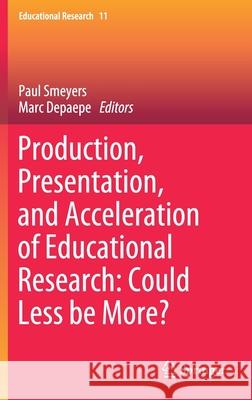Production, Presentation, and Acceleration of Educational Research: Could Less Be More? » książka
topmenu
Production, Presentation, and Acceleration of Educational Research: Could Less Be More?
ISBN-13: 9789811630163 / Angielski / Twarda / 2022 / 244 str.
Production, Presentation, and Acceleration of Educational Research: Could Less Be More?
ISBN-13: 9789811630163 / Angielski / Twarda / 2022 / 244 str.
cena 523,30
(netto: 498,38 VAT: 5%)
Najniższa cena z 30 dni: 501,19
(netto: 498,38 VAT: 5%)
Najniższa cena z 30 dni: 501,19
Termin realizacji zamówienia:
ok. 16-18 dni roboczych.
ok. 16-18 dni roboczych.
Darmowa dostawa!
Kategorie:
Kategorie BISAC:
Wydawca:
Springer
Seria wydawnicza:
Język:
Angielski
ISBN-13:
9789811630163
Rok wydania:
2022
Wydanie:
2021
Numer serii:
000380465
Ilość stron:
244
Waga:
0.51 kg
Wymiary:
23.39 x 15.6 x 1.42
Oprawa:
Twarda
Wolumenów:
01
Dodatkowe informacje:
Wydanie ilustrowane











